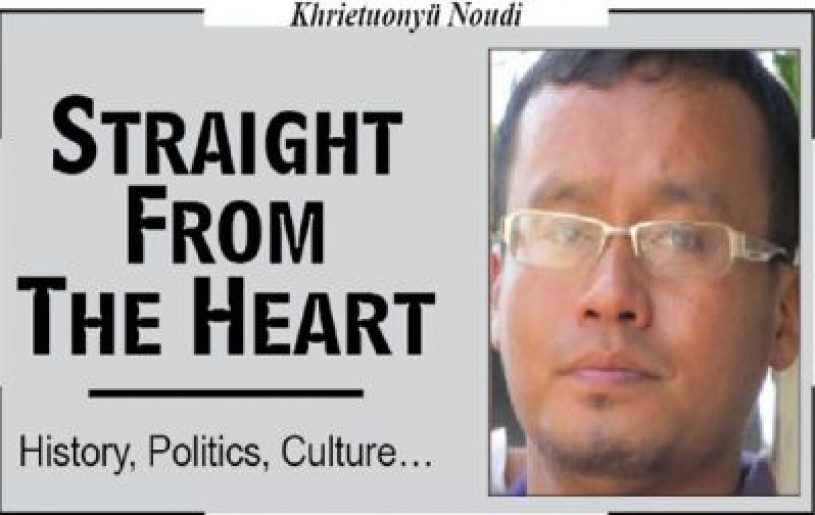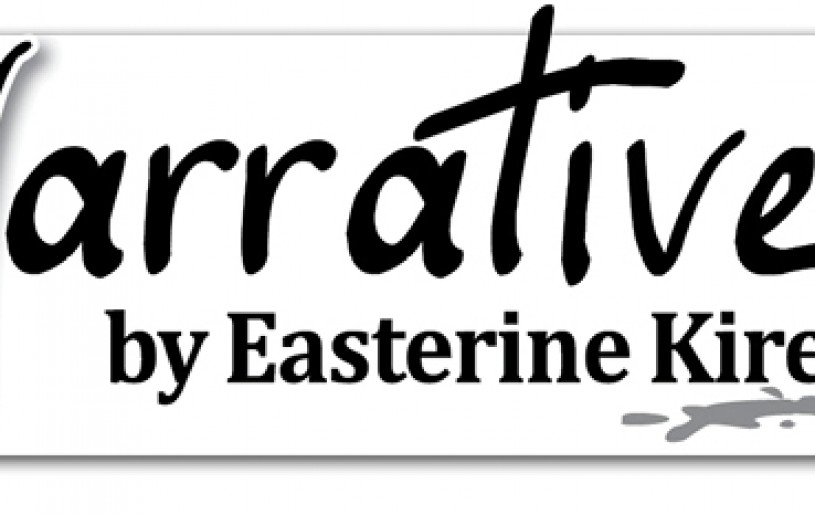
The news is out! It’s now being reported that a certain Naga politician has already begun promising to sponsor certain willing followers of his for the upcoming 2018 General Election in Nagaland. If this is true, he must be making all the decisions as to who he wants to be your leaders. Obviously, he wants your endorsement of his decision and vote for his candidates. That’s not all. The BJP and the Congress are also desperately trying to win over some of us who will serve as their extended minds and mouth as well as hands and feet amongst our Naga people. My question is, shouldn’t the local people do the choosing of their own leaders without any outside interference?
Any community that has self-pride and believes in people’s sovereignty must not succumb to external appeals or pressures when deciding its leaders. Yielding to politicians’ tactics of buying or stealing our leadership selection mechanism must be resisted. To put it another way, it is the local community members who must do the choosing of their own leaders, clean and free.
For that matter, what about our Indian parliamentary system of choosing the chief executive at the state level? Again, that person is basically the choice of the winning political party, who is not necessarily the people’s choice, because the CM is always chosen by the elite Party officials. He is a party leader. Hence, his first priority usually ends up to be for his party, not the people who voted for him.
Our Indian politics and parliamentary system have many undesirable flaws. But if we are truly serious about clean politics and good government, we must have the courage to bring change. Perhaps given the special provision of the Article 371(A), we the Naga people are in the best position to demolish the old Indo-British colonial structures imposed on us and begin doing things “our own way” (self-assertion), although we cannot expect everything to happen within one election cycle.
When I talk about our need for structural change at the top executive level, I am not referring to a political system of dual executive: having a King or Queen as head of state to perform the more ceremonial aspects of top leadership, while a prime minister as head of the government is responsible for the more political aspect (e.g., as found in Britain, Denmark, or Japan). Nor am I talking about having a presidency with mere ceremonial functions, such as in Germany, Ireland, and India. Of course, the main advantage of the dual executive is that citizens can be angry or hostile toward the head of government while still remaining loyal to the nation through their affection and support for the more ceremonial head of state.
What we Naga people need is, I believe, a fused executive political system. This, in a way, could be somewhat similar to the organizational setup of the original NNC/FGN, in which the President of the NNC was supposed to be above party politics. Or preferably, it could be like the American presidential system of government, in which a single actor (the president) fulfills both the ceremonial role associated with the head of state and the political functions associated with the head of the government. For the present dispensation in Nagaland, this could be in addition to having the governor who represents the Indian state.
Even if the Indian national parties and our regional parties in Nagaland were to continue for some more years, we would do well, I think, to consider adopting a fused executive system so that partisan politics would be lessened and our people’s unity would be strengthened. For such a top leadership position, it would be necessary for any aspiring candidate to establish a direct relationship with all our people and tribes.In turn, all eligible voters within the state should decide whether to have him or her as their leader by direct vote instead of one constituency or a winning party doing it. Statewide direct election can provide such a leader with greater political legitimacy and credibility. Thus, he or she can be more readily accepted as the true representative of the entire people of Nagaland.
The chief executive is expected to use the political parties and the government bureaucracy as a means to serve the public instead of building his party stronger and the government bigger at the expense of the common people. As the top leader, he must set the tone for the rule of law. He must carry out his duties with the Constitution as his guide. His power is limited by specific restrictions mentioned in the Constitution or imposed by the legislature with Constitutional sanctions. As such, he is subservient to the legislature. Unless existing laws are revoked, he cannot have the option of changing the rules of the game. He has a choice only of options to the context in which he bargains.
On the other hand, the chief executive can enjoy several unique powers. First, the Constitutional authority derived from the provisions of the Constitution that outline his special governmental role. Second, the statutory authority derived from the laws passed by the legislature that give him the power to translate legislative goals into programs, budgets, and regulations. If it is to be like the American presidential system, the chief executive cannot formally introduce legislation, but he can develop legislative proposals and find a member in the legislature to sponsor it. Or when he is faced with a badly divided house, or one controlled by another party, he can use threats of veto power. This is another power he has access to. But perhaps his most effective power comes from his position as the leader of the people to influence their opinions and galvanize support for his policies or vision.
All these powers given to the chief executive are not for the promotion of his self-interest. Rather, they are to be used for the people at large so that they will enjoy public security, social justice, and domestic prosperity.






